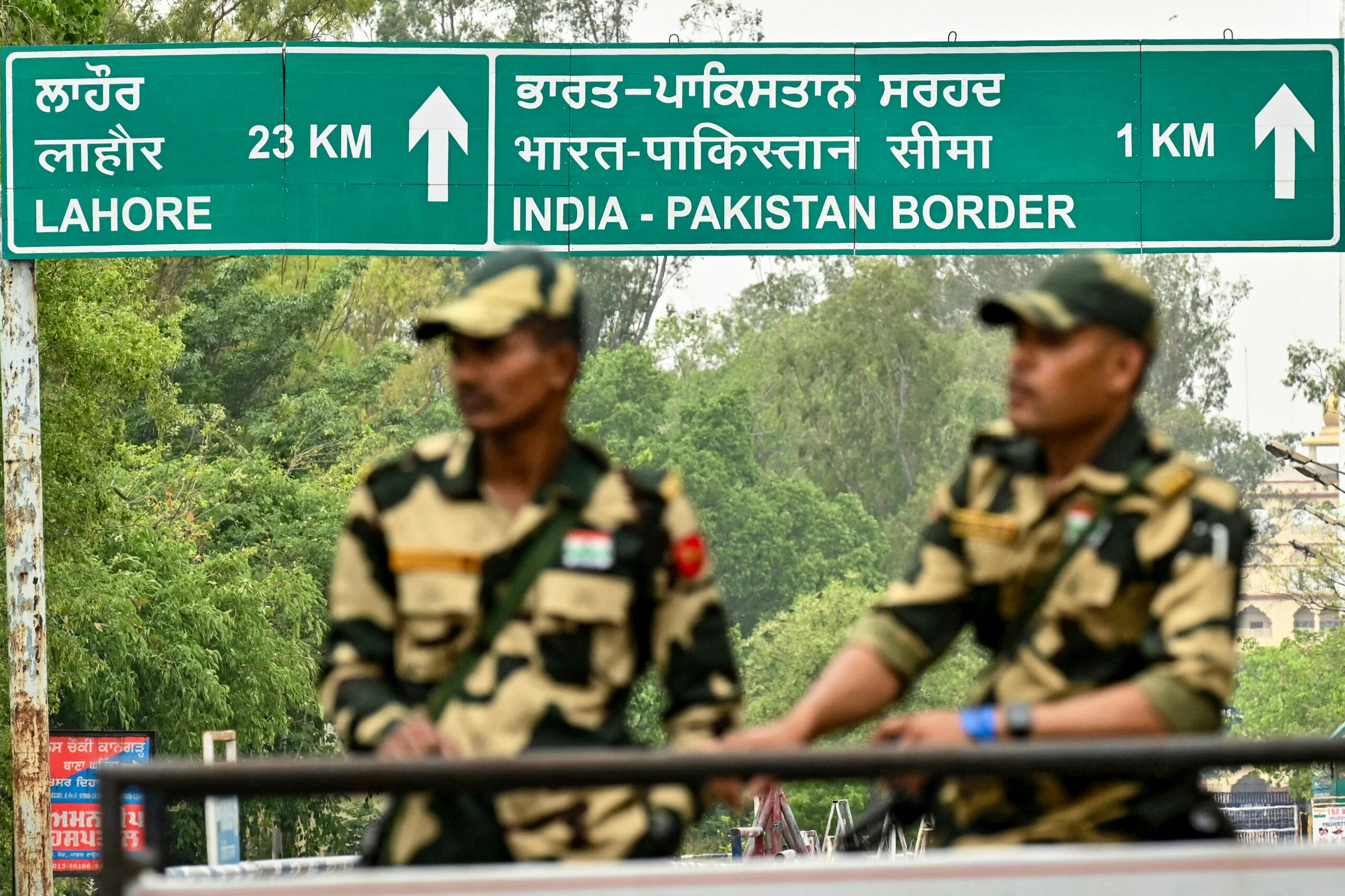
India has launched a military operation targeting sites in Pakistan-controlled territory following a deadly attack on a tourist bus in Kashmir that killed 26 people. The operation, named Operation Sindoor, marks one of the most significant cross-border escalations in recent years.
Pakistani security officials reported that the strikes killed at least eight people and injured dozens. India said the action was in response to cross-border shelling that killed 10 civilians on its side of the border. Islamabad has denied any connection to the bus attack and rejected claims of harboring those responsible.
What Is Operation Sindoor?
“Sindoor”—the vermillion mark worn by married Hindu women and warriors—has become a symbol of mourning after the April 22 Pahalgam massacre, where men, including newlyweds were killed based on religion. Victims’ families praised the Indian Armed Forces’ strikes as overdue justice, The Hindustan Times reported.
The Indian strikes are among the largest against alleged terrorist infrastructure in Pakistan and Pakistan-controlled Jammu and Kashmir. According to an intelligence document shared with Newsweek after the assault, the Indian army said the targets were run by Jaish-e-Mohammad (JeM), Lashkar-e-Taiba (LeT), and Hizbul Mujahideen (HM)—all designated as terrorist groups by India.
Pakistan’s National Security Council said it has authorized its military to “avenge” India’s strikes, as global powers including the U.S. and China urged both nuclear-armed nations to exercise restraint.
NARINDER NANU/AFP/Getty Images
Why Are India and Pakistan in Conflict?
India and Pakistan each control parts of Kashmir, but both claim the entire resource-rich region. Nestled in the Himalayas, Kashmir is home to around 13 million people—roughly seven million in Indian-administered areas and six million under Pakistani control.
The U.S. has long held that Kashmir’s status should be resolved through direct talks between India and Pakistan. The latest flare-up has pushed the long-running conflict back into focus, posing a new test for U.S. foreign policy under President Donald Trump.
In addition to the core territorial dispute which prompted several historical wars between the two countries, conflict has included cross-border attacks, nuclear rivalry and water disputes—with India suspending the Indus Water Treaty following the tourist attack.
Is India a U.S. Ally?
India is not an official U.S. ally, but it has become a key strategic partner—especially as both nations seek to counter China’s regional influence. Prime Minister Narendra Modi visited Washington in February, and the two countries launched a broad initiative—the U.S.-India COMPACT—to boost cooperation in defense, energy, and technology.
While officially non-aligned, India’s deepening economic and military ties with Washington have grown alongside Trump’s praise of Modi as a “great guy” and “tough negotiator.”
Is Pakistan a U.S. Ally?
Pakistan has been designated a major non-NATO ally for over 20 years, a designation granted during the U.S.-led war on terror to facilitate closer military cooperation.
But ties have frayed, with Washington frustrated over Pakistan‘s links to militant groups, pushing the U.S. to reduce military aid while still coordinating on counterterrorism and regional stability. Islamabad’s deepening partnership with Beijing—anchored by the China-Pakistan Economic Corridor—has further complicated its relationship with Washington.
